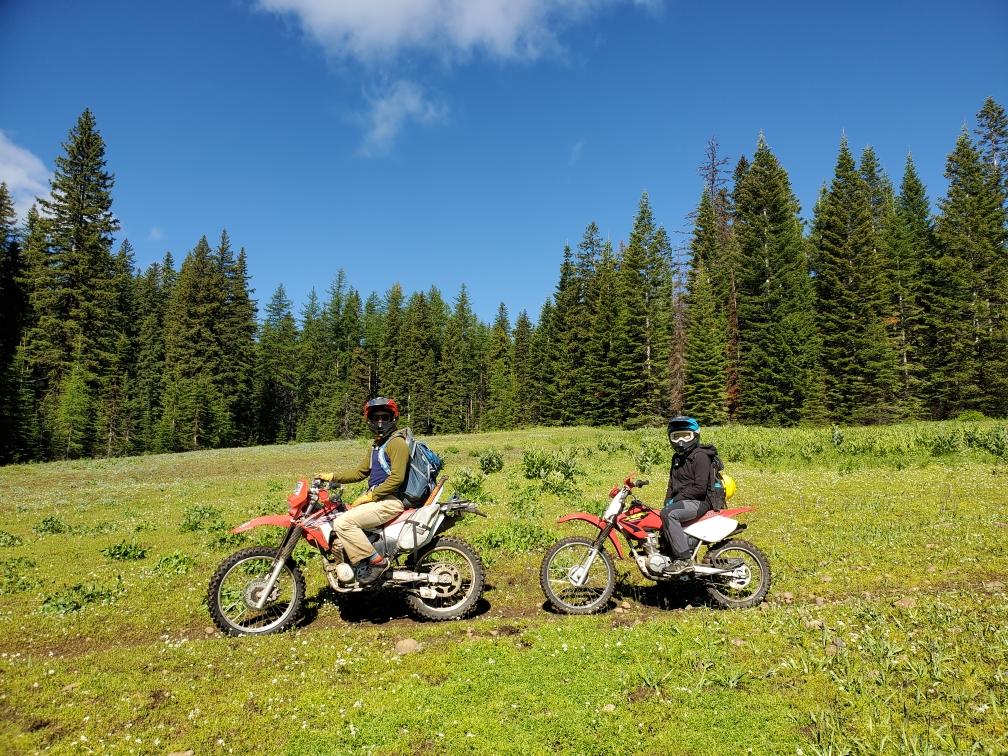The Umatilla National Forest (UNF) recently restricted access to the public due to unfavorable fire conditions. The unprecedented heatwave that washed over the Pacific Northwest in June set record-breaking high temperatures causing fire season to come early. Until the forest closure, I was working mostly maintaining trails with the trail crew for the Walla Walla Ranger District in the Umatilla National Forest. Our small crew of four utilized tools like chainsaws, dirt bikes, crosscut saws, etc. to accomplish our trail maintenance goals. Trying to maximize time maintaining trails, there are underlying impacts unassociated with trail maintenance work like commuting to the project site. These impacts can be harmful, though necessary in providing recreation opportunities. In conjunction with my work to maintain trails, I consider whether the benefits of the work outweigh the impacts and potential damages we have on the environment. The ethics of trail maintenance work with the UNF involves providing an opportunity for the public to safely and effectively access nature. Through recreation, I hope the public builds an appreciation for these natural spaces thus motivating a desire to protect them.
Mission of the National Forest Service: “To sustain the health, diversity, and productivity of the Nation’s forests and grasslands to meet the needs of present and future generations” (USDA).
Areas of the American West during the late 19th century, like the UNF, promised resource abundance which prompted homesteading movements across the west in search of raw material:
timber, gold, farmland, etc. The impact displaced pre-colonial habitants like the American Indian and buffalo, though stimulated rapidly growing industries (Williams). Concern for impacts
sparked the first generation of “academic ecologists” or conservationists who contributed to retaining forestland across the west (Cronon). “Our project must be to locate a nature which is within rather than without history, for only by so doing can we find human communities which are inside rather than outside nature” (Cronon). The National Forest Service provides a way to connect with the natural world which exists in the context of human impact.
I arrive for work each morning at the Walla Walla Ranger District office at 0600 (6:00 am), commute to the project site, then return to Walla Walla all within a ten-hour day. Time clearing or maintaining trails during a workday is a fraction of the entire workday. In order to accomplish our trail maintenance goals, there is an abundance of work behind the scenes. Cleaning, sharpening, organizing tools are workspace areas ensure trail maintenance work is done effectively. In a time before heavy machinery, land management practices and the maintenance required to do required different processes. Trail building in the UNF has come to exist using an array of tools and procedures, and has developed over time to maximize efficiency and mitigate risks. Recognizing the history trail building and the National Forest can provide context for my work and how I impact the land. Through working with trails in the Umatilla National Forest, I hope to inspire a connection with the natural world.

